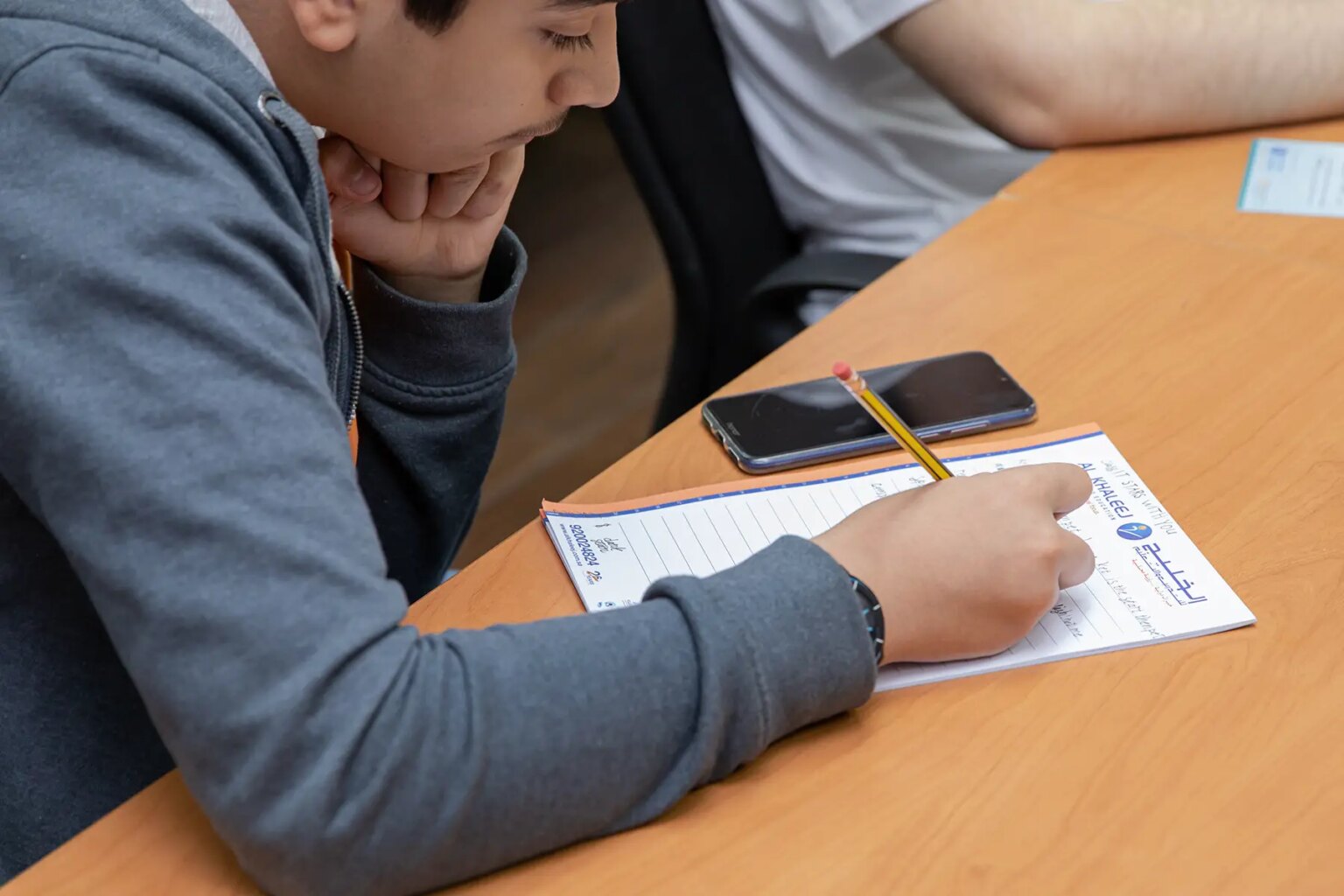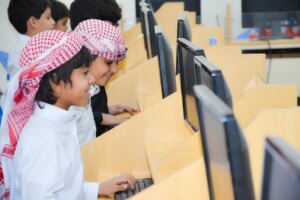Saudi Arabia is a sprawling desert nation with a conservative people and culture. But while it can seem intimidating at first, it’s important to keep in mind that the Kingdom hosts people from all over the world. As a result of this large expat presence, there are many good secondary schools in Saudi Arabia, which is good news for expat parents.
To explain everything you need to know about public and private schools, from enrollment to graduation, the following topics are covered below:
The secondary education system in Saudi Arabia
Although schooling is mandatory in Saudi Arabia until the end of intermediate education, Grade 9, the gross enrollment rate at secondary schools in the Kingdom is 91%. The school system offers plenty of options for locals and expats alike. As you might expect, public schools in the country cater mostly to citizens. There are also private schools that comprise both Saudi-owned and international schools, but these differ greatly.
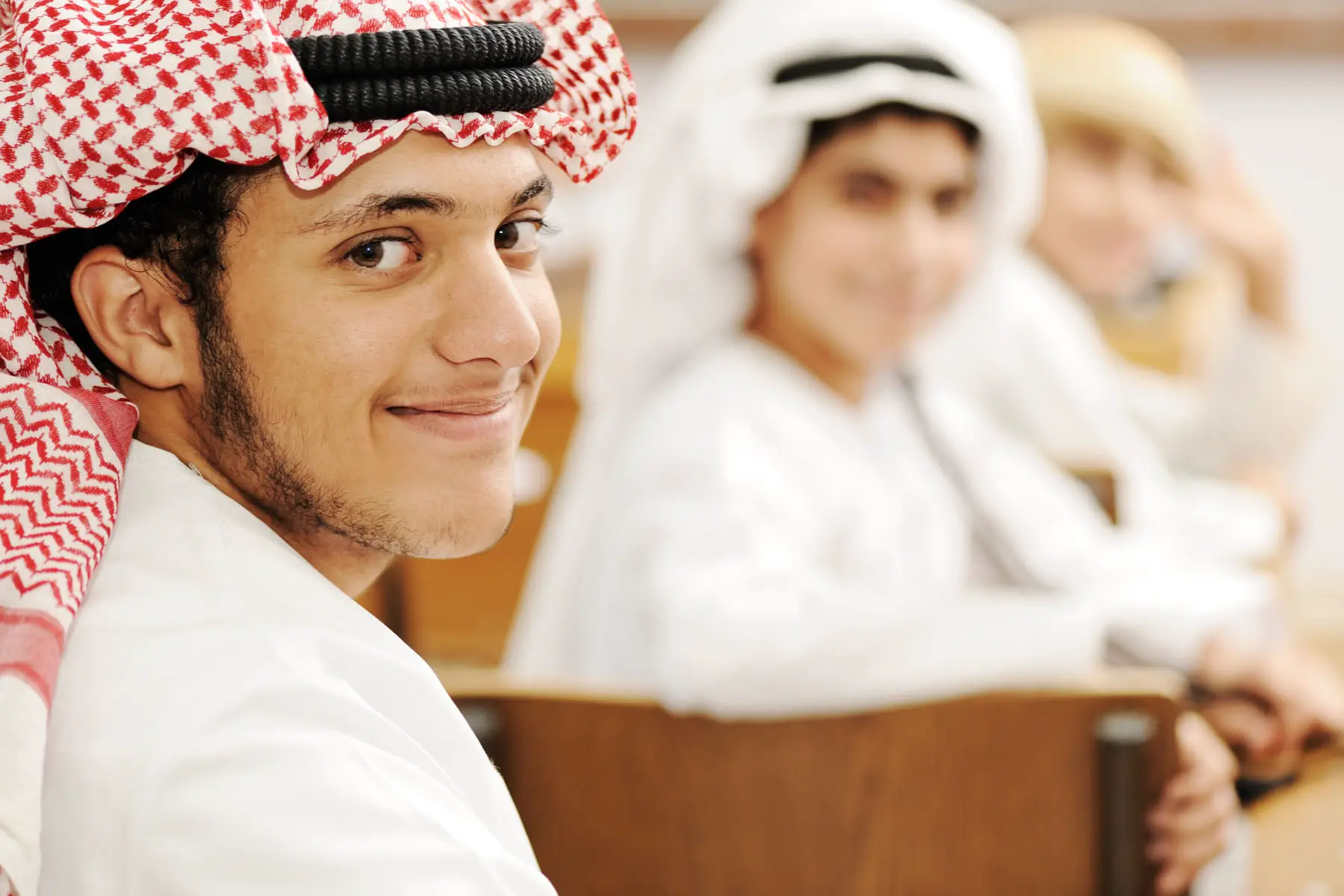
While the secondary school system in Saudi Arabia can seem complicated, it is useful to think of it as two streams. The first stream includes both public schools and Saudi-owned private schools. The Saudi Ministry of Education oversees all of these schools. As such, they are segregated by gender and usually cover Grades 10 to 12.
The second stream consists of private international schools. These schools typically enroll from Grade 9 through 12. That said, this can vary. These schools are free to follow curriculums from abroad and don’t have to be gender-segregated. As a result, their curriculums and school culture vary.
Special educational needs in secondary schools
As with other parts of the world, the field of special educational needs (SEN) is relatively new in Saudi Arabia. In fact, the first class of special education teachers graduated in 1988. The Ministry of Education is putting in place programs to integrate children with SEN into public secondary schools in the Kingdom. In addition, there are specialist schools like the Jeddah Autism Center, which enroll children up to the age of 16.
It is also worth checking with individual international schools, as some do accommodate special needs students. As such, it may be wise to contact the International Schools Group (ISG) (Dhahran Campus), the American International School, and the British School of Jeddah.
Public secondary schools in Saudi Arabia
The state has made education a top priority in Saudi Arabia. In fact, in 2018 alone, the high-income country built 719 new schools. As a result, public secondary schools in the Kingdom remain the most popular option for locals. This is perhaps not surprising, given that they are free to attend.
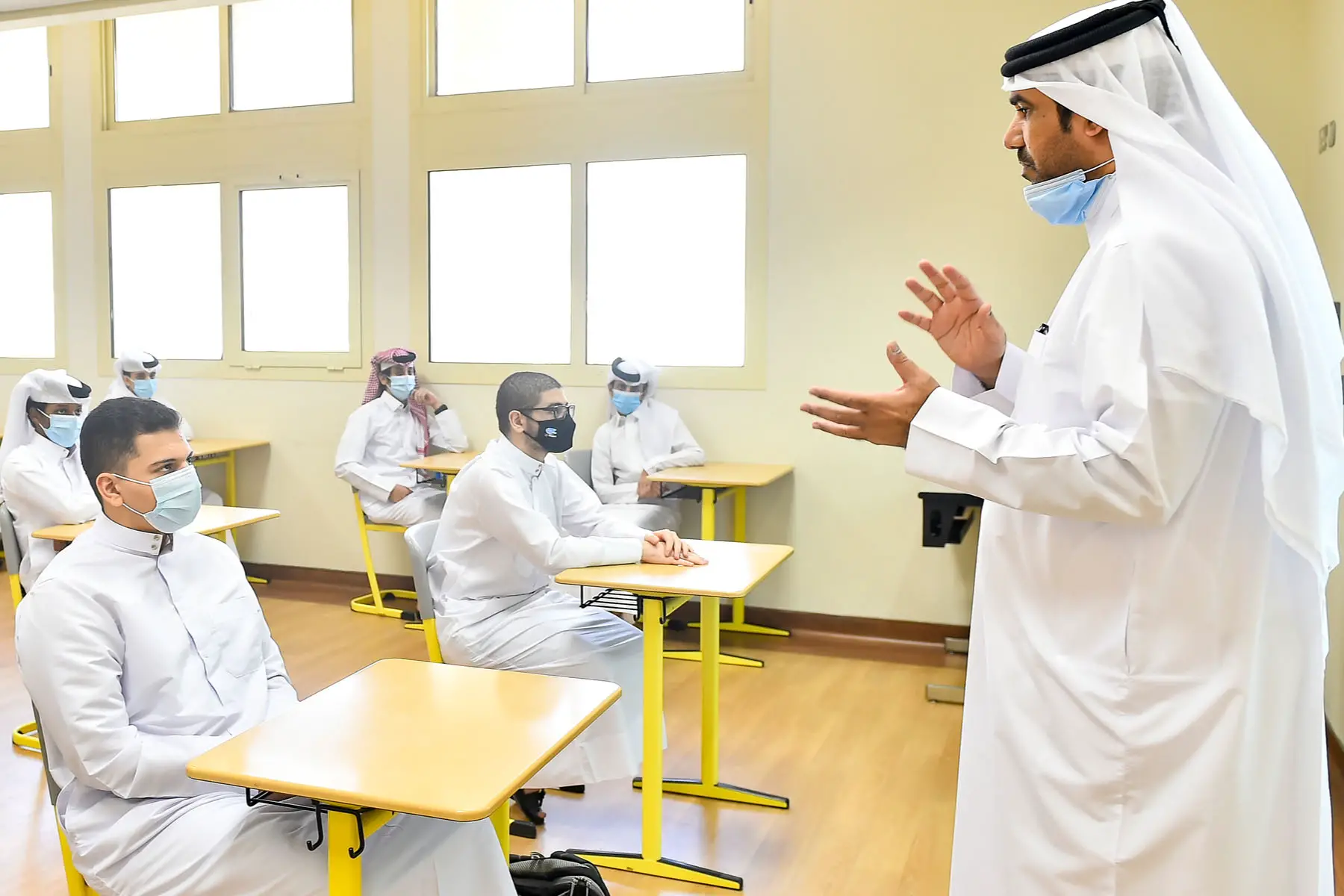
With public schools, the quality and standard of teaching will vary from school to school. It is also important to be aware that the curriculum in these schools focuses on preparing students for continuing their education within Saudi Arabia. As a result, this limits their opportunities abroad. Therefore, if you would like your child to have options overseas, you might want to consider sending them to an international school. Interestingly, an increasing number of Saudi students are opting for this, too.
The curriculum in state secondary schools in Saudi Arabia
Should you enroll your child at a state school in Saudi Arabia, there are many things to be aware of. Firstly, subjects in the core curriculum include Arabic, Islamic Studies, English, mathematics, science, history, geography, health, and information technology. Also, keep in mind that class size, extra-curricular offerings, and physical education options will vary. Of course, you should also be aware that their school week runs from Sunday to Thursday. In terms of holidays, students have about two months off during the summer. They also enjoy several weeks off in April, for the Eid festivals, and a few weeks in December and January.
In their final three years at secondary school, students must choose a particular area of focus – religious, general, or technical-vocational. Those interested in the general stream will follow general studies in their first year. Their classes then concentrate on science or liberal arts subjects in the final two years. Meanwhile, those in the religious stream will attend religious high schools. They also study the general core curriculum but will focus more hours on specialized Islamic Studies courses. As such, students must be able to recite the entire Koran in order to graduate. They can then seek employment as Imams.
Students in the technical-vocational stream often attend specialized secondary schools. In these schools, the curriculum combines general academic subjects with training in fields like accounting, engineering, and computer technology.
The pros and cons of state schools in Saudi Arabia
Public secondary schools in Saudi Arabia pose unique opportunities and challenges for children. The benefits include making close friends with pupils from a culture they might otherwise never know. Your child will also leave school with excellent Arabic language skills. This could be very beneficial in a globalizing world. However, enrolling your child in a Saudi school also requires that you can navigate the Saudi cultural and educational landscape. As such, you will need to be able to speak Arabic to be able to do so and support your child.
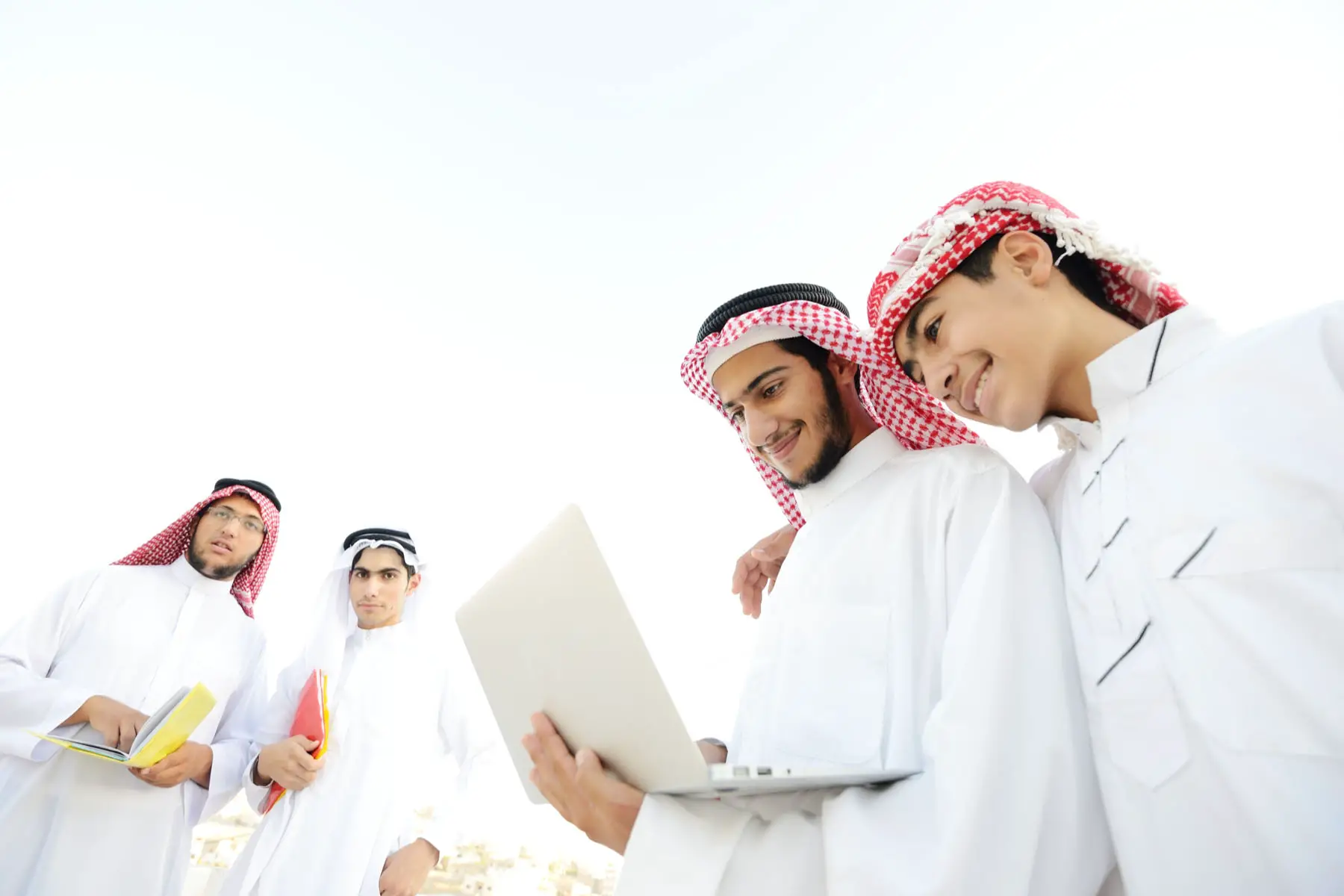
In addition, public schools are heavily influenced by conservative perspectives on the Muslim faith. As a result, classrooms are segregated by gender. Furthermore, your child’s Saudi secondary certificate may not be recognized by universities abroad. As such, this leaves them with little option but to study further in the Kingdom. This is one of the main challenges of finding a school program in a new country. Therefore, be sure to discuss these realities with your family as you search for the right school for your child – and keep an eye on the future.
Applying to secondary state schools in Saudi Arabia
If you speak Arabic well enough to navigate the public school system and your child is likely to study further in the Kingdom, there are more things to consider. Firstly, while you are allowed to enroll your child in Saudi public schools, there might not be space for them. This is because the Saudi Ministry of Education caps foreign enrollment in public schools at 15%. In addition, the ministry prioritizes certain student groups, such as the children of government contractors. To apply, you will need the attested transcript from your child’s last complete grade, as well as all of your identity documents. You can then register online using the Noor system and wait to be contacted with details on further steps.
Private secondary schools in Saudi Arabia
Saudi-owned private secondary schools are distinct from international schools. However, they are closely related to public schools. The Ministry of Education oversees Saudi-owned private schools, just as it does public schools. As such, they must segregate classes by gender, teach in Arabic, and follow the state curriculum. Given these similarities to public schools, it is perhaps not surprising that few students attend private schools. In fact, in 2018, just 16% of Saudi students attended private school.
It is also worth noting that, while they are very much alike, there are differences between private and public schools in the Kingdom – and even between private schools themselves. As such, the costs, boarding options, and class sizes will vary from school to school.
International schools in Saudi Arabia
Standing apart from both public and private schools are international schools. These are a popular option because they cater to expats in search of secondary schools in Saudi Arabia. These schools are largely independent and are, therefore, free to teach an internationally recognized curriculum or simply follow the educational program of a particular country. In fact, you will find all sorts of international schools in the Kingdom; from American to Indian, Filipino to British, and everything in between.

However, be aware that these schools are not cheap, with annual tuition ranging anywhere from SAR 20,000 to SAR 90,000. Of course, this varies from school to school and grade to grade. For example, tuition fees for Grades 9 to 12 at the American International School-Riyadh are SAR 91,916 plus VAT of 15%. This means that the total annual fee for one child amounts to SAR 105,703.40. As such, it is worth doing some extra homework and learning what to look for when it comes to choosing a good international school.
The pros and cons of international schools in Saudi Arabia
As mentioned above, international schools are beneficial for a number of reasons, all of which result from their focus on serving expats. Firstly, they offer continuity in your child’s education by allowing them to follow a recognized educational model. Secondly, they offer a haven of belonging and familiarity as they draw together expats. And lastly, they often have resources to help students and families beyond the classroom as they cater to expats and are well aware of the challenges they face. As such, an international school can help you settle into life in the Kingdom.
However, as with everything in life, there are some downsides, too. In this case, enrolling your child in an international school can mean limiting them to an expat cultural bubble. This means they miss opportunities to engage with locals. Aside from this, one of the major drawbacks of international schools is the often hefty price tag. As mentioned above, fees can be very expensive, so be sure to review your options before settling on a school.
Graduating in Saudi Arabia
Once students have enrolled in school, they will focus on graduating to the next step. However, graduation requirements in Saudi Arabia depend on the stream and the school a student attends.

Upon completing the relevant coursework and passing their exams, public school students receive a General Secondary Education Certificate or a Secondary Vocational School Diploma. Both graduation certificates allow students to attend certain higher education programs in Saudi Arabia, but the former offers wider access.
Meanwhile, religious stream students graduate with a Religious Institute Secondary Education Certificate. International school students, on the other hand, receive a diploma in keeping with the curriculum of their institution. They then have the option to continue their studies abroad.
The International Baccalaureate (IB) in Saudi Arabia
Many international schools throughout the world offer the International Baccalaureate (IB) program. IB students take courses in the arts, mathematics, literature, language, and science. They also complete a pivotal final service project. As such, IB program graduates often have an easier time with college applications because they hold a globally recognized diploma. Currently, 15 secondary schools in Saudi Arabia offer the IB Diploma Program.
Trade schools in Saudi Arabia
Secondary-level vocational training is generally not an option for expats in Saudi Arabia. However, there are specific public schools in the Kingdom that offer vocational training to locals with courses that offer both theoretical and practical training. Fields of study can include agriculture, sales, construction, and computer technology. Students can apply for admission from Grade 10.
As trade schools exist within the public sector, students must be able to enroll in Saudi public schools and be able to learn exclusively in Arabic. Therefore, this is not often a path open to expats. Notably, while international schools may offer select vocational courses, there are no international trade schools in Saudi Arabia.
Useful resources
- Noor – the Noor Registration System which allows students to register in public schools
- Ministry of Education – provides guidelines on enrollment to secondary school in Saudi Arabia
- International Baccalaureate – the official webiste of the IB which allows you to locate schools and learn about the different programs available
